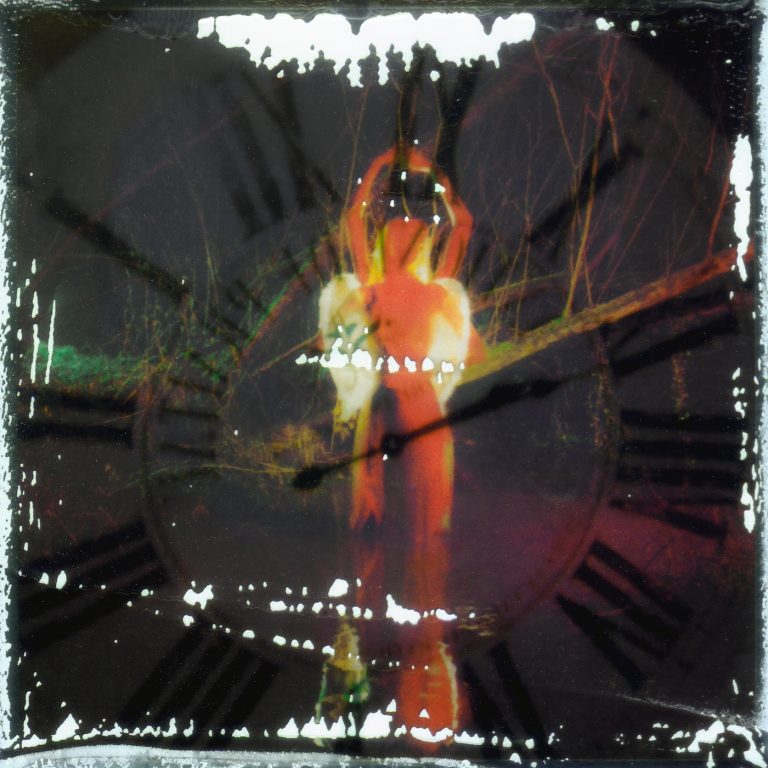Barring malice or ruefulness, Lia Metcalfe’s voice cannot smile. It grits its teeth, howls, or spreads darkness. During the press buildup for Afraid Of Tomorrows, the Liverpudlian ticked off a litany of musical influences and lyrical approaches but it all boils down to this: as Metcalfe’s vocals go, so goes The Mysterines. On their new album, they venture into endless night.
Without necessarily clinging to a formula, Afraid feels like a second record: the exhaustion of touring, sleeping in close quarters, tired of the setlist, up late then early mornings, washing but never feeling clean. Crisp, hook-filled songwriting from the debut makes way for mood and tone. The songs frequently bleed into one another and the vast majority are counted-off in some manner, giving the effect of continuous recording or live performance.
Metcalfe has said the band sought to recreate the polished grit of early-00s New York bands like The Strokes and Interpol. What the quartet has created, however, ends up elsewhere. True, there are early-aughts similarities to Black Rebel Motorcycle Club and JJ72, but mainly Afraid recalls a handful of mid-90s pivots. The most obvious – owing strongly to Metcalfe’s technique – is PJ Harvey’s immediate post-trio output, especially “To Bring You My Love” and “Long Snake Moan”.
The others are Black Love by The Afghan Whigs and Exit The Dragon by Urge Overkill. Neither were sophomore efforts though each was the follow-up to the bands’ heretofore most successful albums. Both were deliberately darker in tone and less commercially accessible; neither thrilled their record labels’ accountants. While those albums didn’t stink of self-sabotage, they were evidence of how the industry can age and jade you. Drugs and exhaustion played a role in both.
The challenge for a sophomore band – particularly one as light on innovation and dominated by a single instrument as this one – is how to tweak a successful model without relying on a gimmick or ignoring strengths. The Mysterines gamble with the new album’s overall pace. The most popular tracks on their 2022 debut Reeling showcased punk/grunge energy, whereas Afraid draws more directly from that album’s smoldering “Dangerous” and (ironically) its title track. Despite one fewer song, it’s a minute longer than its predecessor and feels leaden as the second-half grinds out. But what a first half it has.
Opener “The Last Dance” – already a live staple – establishes a theme of loners and relationships forged through circumstance. Its dirty guitar intro recalls their recent tourmates Arctic Monkeys as Metcalfe creaks, “The last time that we danced / Midnight at the Texaco”. Texacos are all over the world including Merseyside, but the name evokes service stations in bone-dry wastelands of the American west. The next line confirms it (or close): “In the car headlights like luna moths, or extraterrestrials”. The nod to Area 51 isn’t as relevant as the insect reference. Lunas are only found during nighttime in North America and have a cruel seven-day lifespan. By the time she’s crying out, “If only you’d hold my hand”, the sensations of pressure and desperation have been built.
“Stray” opens with chords that mimic another 90s touchstone in Nirvana’s “Something In The Way”, albeit fully distorted. Here, Metcalfe and her peers become feral animals; each scream of the title is an indictment for a generation’s abandonment.
“The clock is only ticking / if you’re listening”, laments “Another Another Another”. “Hawkmoon” fills itself with loneliness and questions: “Is there anybody listening?” “Am I the only one left alive?” As the album’s centrepiece, “Hawkmoon”’s acoustic-cum-supernova dynamic would seem to be a transition or epiphany and, duly, “Sink Ya Teeth” arrives with a strut. However, the shift in the album becomes distinctly more pop. Both “Sink Ya Teeth” and “Junkyard Angel” skim toxic-relationship dynamics and come in a three-pack of midtempo rockers that slacken and sag the mood. The title track ends the album with a dose of optimism, though the overriding impression is that the album actually ended several tracks earlier.
It’s no coincidence that the close-miking and tinny EQ of “Afraid Of Tomorrows” wash out Metcalfe’s verses. In changing the dynamic, The Mysterines get a little lost.

